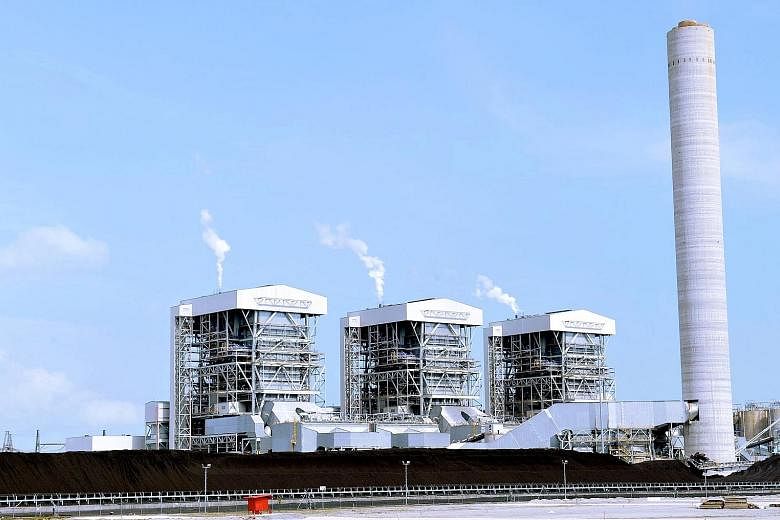An investor group in the region, which includes Singapore's sovereign wealth fund GIC, has set its sights on greening Asia's electricity sector, among the world's most pollutive.
Launched yesterday, the Asian utilities engagement programme is coordinated by the Asia Investor Group on Climate Change - the regional branch of a global group that galvanises asset owners and financial institutions to engage in low carbon investing.
The aim of the new engagement programme is to work with utilities in Asia to cut their carbon footprint, so the world has a better chance of averting the harshest impacts of climate change.
There are 13 investors and stewardship service providers participating in the first year of the new programme, including GIC, BNP Paribas Asset Management and JP Morgan Asset Management.
Five utility companies in China, Hong Kong, Japan and Malaysia will be the focus of the programme in its first year, said the investor coalition.
The five comprise China Resources Power, Hong Kong's CLP, Tenaga Nasional in Malaysia, as well as two Japanese firms - Chubu Electric Power and Electric Power Development.
They were selected because they produce substantial greenhouse gas emissions, have large coal-fired power capacity or have a "strategic role" in driving the decarbonisation of the sector, said the group.
In 2019, the five utilities collectively emitted approximately 285 million tonnes of carbon dioxide - equivalent to the national emissions of larger economies such as Spain.
The burning of fossil fuels for energy is releasing heat-trapping emissions into the atmosphere. This ever-thickening blanket of greenhouse gases is driving climate change. Coal is the dirtiest form of fossil fuel.
Executive director of the Asia Investor Group on Climate Change Rebecca Mikula-Wright said the transition of Asian utilities to net-zero emissions will be critical for the world to meet its Paris Agreement goals to limit global warming to 1.5 deg C.
"Asian utilities are responsible for 23 per cent of the world's total carbon emissions," said Ms Mikula-Wright.
Moreover, coal-fired power plants in Asia still have a long runway for continuous emissions. The average age of such plants in Asia is only 13 years, when compared with an average life of 40 years, she noted.
"This new programme will... assist investors to increase the effectiveness of their work with Asian utility companies to manage and mitigate climate risk," she added.
The 13 backers of the new programme said in a separate statement that they will work with the utilities to commit to a few measures. They include the setting of clear decarbonisation strategies, with short-, medium-and long-term action plans, and a timeline for achieving them.
These plans should be set based on 1.5 deg C temperature scenarios, such as the one by the International Energy Agency (IEA), said the investors. For instance, one of IEA's guidelines is that coal should be phased out as a fuel source by 2030 in developed countries, and by 2040 for all other regions.
GIC chief investment officer for fixed income and chair of the sovereign wealth fund's sustainability committee Liew Tzu Mi said: "We support the efforts of the Asia Investor Group on Climate Change to bring together stakeholders and like-minded partners to share best practices in mitigating climate risk with each other and lead Asia's transition towards a low carbon economy."


